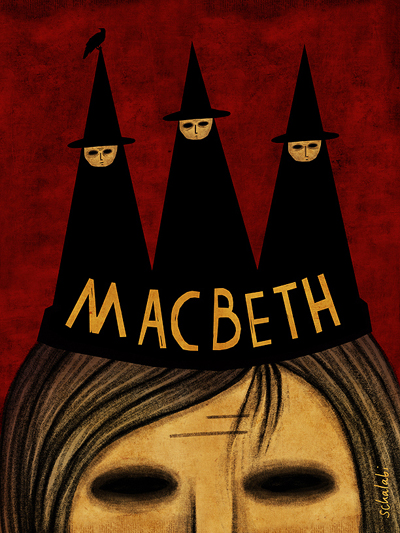Anticipation Guide:
- How do we know what is real?
- Are we responsible for our own life and the lives around us?
- What is the role of society?
- How do we determine truth?
- Does society have the right to decide a person's destiny?
- Why are we so fascinated with "reality TV"?
- Is it better to have security or freedom?
- How do you know what you know is true?
- Should people have the option to make wrong choices?
Symbolism in The Truman Show (source)
Garden of Eden/Paradise: Truman leaves the illusory "paradise" at end of movie.
Alternate Reality | the "door": The door represents another reality toward end of movie.
Alternate Reality | the "door": The door represents another reality toward end of movie.
Baptism or death to the old life and re-birth to a new one: Since he must go through the water to reach "real" life. Note that the water is always there, calling to him in the film, but his fear holds him back. In his final surrender to the water, he finds life.
Difficulty Recognizing Evil: At the conclusion of the movie, Christof (Truman Show creator) tries to convince Truman to stay in the imaginary world Christof has created. The setting (a voice from the sky) and the words being said sound a lot like God at first. Upon further reflection, however, it's clear that the show's creator is trying to coax Truman to remain in slavery and is only interested in himself, not in Truman.
Evil/Social manipulation: Christof exerting God-like control. (Christ "off" – absence of Christ)
Slave to Sin | New life in Christ: Truman lives his life believing he is free. However, what he thinks he knows to be freedom is actually slavery. When Truman becomes aware that his "paradise" is really entrapment, he begins searching for a way to escape. Ultimately, he has to leave behind his old life in order to find a new life full of truth, freedom, and reality.
Slave to Sin | New life in Christ: Truman lives his life believing he is free. However, what he thinks he knows to be freedom is actually slavery. When Truman becomes aware that his "paradise" is really entrapment, he begins searching for a way to escape. Ultimately, he has to leave behind his old life in order to find a new life full of truth, freedom, and reality.
John 8:32 | "and you will know the truth, and the truth will set you free."
Love: The love Truman feels isn't in the scripted life Christof writes for him, compels Truman to leave his "paradise."
Resurrection | Overcoming inner fears to get to know the truth: The friend went to the basement to find Truman (The empty tomb). He was not there! He was on a boat on the water. Notice the drowning scene when he is lying on the boat with arms spread out and left for dead. However, he survives the storm. Notice his gasp for air, his new life, resurrection? When he reaches the end of the set and notices the sky is only a painted canvas, Truman ascends the stairs. He then goes forth into the unknown darkness of the world to live in the world!
http://education-for-solidarity.blogspot.com/2012/01/lesson-plan-based-on-truman-show.html
http://xolotl.org/wp-content/uploads/2014/04/truman_show.pdf
http://www.filmeducation.org/pdf/film/TrumanShow.pdf
Short Answer Assignments
http://education-for-solidarity.blogspot.com/2012/01/lesson-plan-based-on-truman-show.html
http://xolotl.org/wp-content/uploads/2014/04/truman_show.pdf
http://www.filmeducation.org/pdf/film/TrumanShow.pdf
Short Answer Assignments
1. Twice in the film, once during the opening
credits and once on the morning of his escape from Seahaven, Truman addresses
both himself and, by extension, the audience, talking to the bathroom mirror. In a well-organized paragraph or two, discuss
the importance of these two scenes to the overall themes of the movie. Obviously, these scenes are meant to “mirror”
each other; is there a progression in Truman’s character evident? How does Weir construct the mise-en-scene in
these scenes? To achieve what
purpose? What does Truman talk about,
and do, in these scenes that reveals his character?
2. One key sequence in defining Truman’s
character occurs early in the film (chapter 7) when he retreats to the basement
to find solace in his chest of memories.
In a well-organized series of paragraphs, discuss the symbolic importance of the chest and its contents. Why does Truman keep this chest and its
contents in the basement, locked away?
What do the contents of the chest reveal about Truman’s character? What is, in your opinion, the most important
item in the chest for Truman? Watch the scene carefully, several times--careful
scrutiny reveals much….
3. In the flashback sequence (Chapter 7),
Christof approximates Truman’s musings (despite Truman’s later declaration that
“You never had a camera in my head!”) as he reflects on his meetings with
Lauren/Sylvia as a teen. During the
sequence at the dance, the characters dance to Marc Bolan’s “Twentieth Century
Boy,” which contains the lyric “I’m your boy, twentieth century toy…I’m your
toy, twentieth century boy.” In a short paragraph,
consider the implications of this lyric
to the film, both in the context of this scene, and as a whole.
4. In a series of well-organized paragraphs, discuss Weir’s use of water imagery
throughout the film; in class we’ve discussed water as a symbol before—does
that symbolic reading apply here?
Throughout the whole film? How
might Weir’s use of water symbolism be considered paradoxical?
5. In a series of well-organized paragraphs, discuss Weir’s use of bridges throughout
the film. What do bridges
archetypically represent? Consider the
various bridges in the film; there are many different kinds….
6. Media, in all forms, permeates the
movie: magazines, television shows
within television shows, advertisement, product placements, etc.
Construct a well-structured thesis statement that responds to the
following question: ultimately, what
does Weir suggest about the media in his film The Truman Show?

